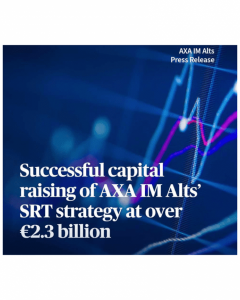How to Use Debt to Build Wealth: A Strategic Guide
Learn how to use debt to build wealth wisely and achieve financial goals. Understand the difference between good and bad debt for long-term success.
Debt can be a powerful tool when used strategically to achieve financial goals. In a society where debt is prevalent, understanding the difference between good and bad debt is crucial. By leveraging debt effectively, individuals can build wealth over the short and long term. This article explores the concept of using debt to build wealth and provides insights into making informed financial decisions.
Debt is a common aspect of modern financial life, with the average debt balance held by U.S. consumers reaching $101,915. While debt can be a burden, it can also be a valuable asset when used wisely. This article delves into the nuances of good and bad debt, highlighting how to use debt to build wealth.
Differentiating Between Good and Bad Debt
The distinction between good and bad debt lies in various factors, including interest rates, repayment terms, and the purpose of borrowing. Good debt is characterized by its ability to contribute to long-term wealth accumulation, while bad debt can hinder financial progress. For example, credit card debt, with its high-interest rates, is often considered bad debt, as it can lead to financial strain and credit score damage.
Examples of Good and Bad Debt
Student loans and mortgages are prime examples of good debt, as they can enhance earning potential and asset ownership. On the other hand, car loans and credit card debt are typically classified as bad debt due to their depreciating nature and high-interest costs. Understanding the implications of different types of debt is essential for making informed borrowing decisions.
Strategies on How to Use Debt to Build Wealth Effectively
Leveraged investing and portfolio diversification are effective strategies for leveraging debt to build wealth. By borrowing to invest in high-return assets or diversifying concentrated stock positions, individuals can optimize their investment portfolios and minimize risks. Additionally, using debt to avoid unfavorable outcomes, such as tax obligations or liquidity constraints, can be a prudent financial move.
Assessing Debt Tolerance
Debt tolerance varies among individuals and is influenced by factors such as risk appetite and financial goals. Before incorporating debt into an investment strategy, it is essential to evaluate one's comfort level with debt and assess the potential risks and rewards. Consulting with a financial professional can provide valuable insights into managing debt effectively and optimizing wealth-building strategies.
In conclusion, the strategic use of debt can be a valuable tool for building wealth and achieving financial objectives. By differentiating between good and bad debt, leveraging debt for investment purposes, and assessing debt tolerance, individuals can harness the power of debt to enhance their financial well-being. Effective debt management and financial planning are essential components of a successful wealth-building strategy.
FAQs on How to Use Debt to Build Wealth
1. How can I determine if a debt is considered good or bad?
2. What are the risks associated with leveraging debt for investment purposes?
3. Is it advisable to use debt to diversify my investment portfolio?
4. How can I assess my debt tolerance and make informed borrowing decisions?
5. Why is consulting with a financial professional important before incorporating debt into my financial strategy?
How to Use Debt to Build Wealth: A Strategic Guide
Blue Owl Acquires Atalaya Capital Management in $450m Deal
Alternative asset manager Blue Owl expands its credit and asset-based finance capabilities with the acquisition of Atalaya Capital Management for $450m.
Alternative asset manager Blue Owl expands its credit and asset-based finance capabilities with the acquisition of Atalaya Capital Management for $450m.
Read moreEuropean Long-Term Investment Funds Garner €46bn Inflows: H1 2024 Insights
Explore the surge in long-term fund inflows in Europe, with equity funds leading the way. Morningstar's report sheds light on the market dynamics for June and H1 2024.
Explore the surge in long-term fund inflows in Europe, with equity funds leading the way. Morningstar\'s report sheds light on the market dynamics for June and H1 2024.
Read moreOak Hill Advisors and One Investment Management Collaborate for European Private Credit Investment
New partnership between Oak Hill Advisors and One Investment Management to invest up to $5bn in European private credit, leveraging their sourcing capabilities.
New partnership between Oak Hill Advisors and One Investment Management to invest up to $5bn in European private credit, leveraging their sourcing capabilities.
Read moreVontobel Acquires Significant Minority Stake in London’s Ancala Partners
Vontobel completes acquisition of stake in Ancala, a leading private infrastructure manager based in London. Stay updated on the latest investment news.
Vontobel completes acquisition of stake in Ancala, a leading private infrastructure manager based in London. Stay updated on the latest investment news.
Read moreBain Capital to Acquire Envestnet in $4.5B Deal
Bain Capital's acquisition of Envestnet will take the wealth technology platform private, closing in Q4. Stay updated on this $4.5B transaction.
Bain Capital\'s acquisition of Envestnet will take the wealth technology platform private, closing in Q4. Stay updated on this $4.5B transaction.
Read moreAXA IM Alts Raises $2.5 Billion for Bank Risk Transfer Trades
French insurer AXA's alternative investment arm, AXA IM Alts, secures $2.5 billion to capitalize on opportunities in the bank risk transfer market.
French insurer AXA\'s alternative investment arm, AXA IM Alts, secures $2.5 billion to capitalize on opportunities in the bank risk transfer market.
Read moreBNP, UBS Eyeing HSBC's German Wealth Unit Sale
BNP Paribas SA and UBS Group AG among potential buyers for HSBC's German wealth management unit, valued at 300-600 million euros.
BNP Paribas SA and UBS Group AG among potential buyers for HSBC\'s German wealth management unit, valued at 300-600 million euros.
Read moreHong Kong’s New Investor Visa Program Attracts Over HK$10 Billion Inflows
Discover how Hong Kong is luring wealthy individuals and families with its new investor visa program, bringing in over HK$10 billion in investments.
Discover how Hong Kong is luring wealthy individuals and families with its new investor visa program, bringing in over HK$10 billion in investments.
Read moreSantander AM Enters Listed FX Market at Eurex with Deutsche Bank
Santander Asset Management makes a strategic move by entering the FX derivatives market at Eurex, with support from Banco Santander and Deutsche Bank.
Santander Asset Management makes a strategic move by entering the FX derivatives market at Eurex, with support from Banco Santander and Deutsche Bank.
Read more















